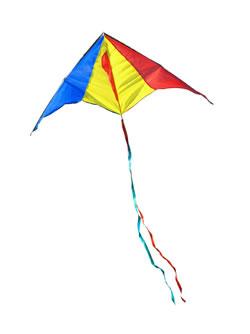You Are Not Stupid!
Have you ever thought of yourself as being less intelligent than others? Did other kids at school call you “dumb”? If so, how did this make you feel about your ability to learn and be considered a good student?
I know someone who was “held back” in first grade, and lived with the stigma of being academically “slow” for the rest of his school career. Yes, he had difficulty with classes that focused on reading and writing. But, I assure you—he was not stupid! He had above-average artistic skills, and remains one of the most creative people I know. He was also an excellent athlete who became a star running back in football and one of the school’s fastest runners in track.
Perhaps you know someone like this, or maybe this is similar to your story. Many people, simply because they do not excel in certain subjects at school, are labeled as “dumb” or “slow” and are considered inferior to other “better” students.
But are they really dumber? Are they in fact inferior?
Or is it just that most traditional school systems focus on a particular approach to reading, writing and arithmetic? What about those students whose natural abilities do not lend themselves to success in those areas? Who—and what—really is “stupid”?
A Broader View
Kathy Koch is an educator, author and motivational speaker who believes that everyone is smart. She also teaches that a new understanding of “smart” is necessary. Here is something she wrote at her Web site, CelebrateKids.com: “A question children shouldn’t need to ask is, ‘Am I smart?’ because the answer is always, ‘yes.’ If they’re asking this question, it’s because they’re doubting themselves, have been made to feel stupid by something or someone, and need to be encouraged.”
One tragedy of being labeled “stupid” is that people can believe the label and sell themselves short in important ways. Even as adults, many continue to feel inferior because they received the message in school that they did not measure up academically—despite the fact that this message was based on a system that tends to reward those who do well in a narrow set of criteria, primarily in language and mathematical skills.
While these aptitudes are vitally important, they are only two of the eight areas of intelligence that Dr. Koch and some others believe all people have. Discovering and developing the other six can help people discover for themselves that they are not stupid, even if they have not done well in certain subjects.
Eight Kinds of Smart
Dr. Howard Gardner, a professor of education at Harvard University, is credited with developing the theory of multiple intelligences. In 1983, he wrote a book, Multiple Intelligences, describing them and their meaning. Educator Thomas Armstrong, Ph.D., has since simplified the original labels to make them easier to understand. Here is each one with a brief description:
Word Smart: This is thinking in words, and enjoying using them to read, write, tell stories, persuade, entertain or instruct.
Logic Smart: Those who demonstrate the ability to reason, categorize and understand cause-and-effect relationships. They have a natural inclination toward math, science, statistics, puzzles and asking questions.
Picture Smart: People who think visually and enjoy creating art, designing, making crafts, learning history, photography, beauty and building toys gravitate toward this intelligence.
Music Smart: Thinking in rhythms and melodies, with ability in music, singing, or having a musical ear describe this type of smart.
Body Smart: This is being able to control body movements through physical activities such as sports or dancing, but also sewing or carpentry.
Nature Smart: If you are drawn to being outdoors and have a strong interest in animals, plants, rocks, stars, camping, hiking and other facets of nature, you have this type of intelligence.
People Smart: Those who understand and are able to discern and respond to the moods, intentions and desires of others are people smart. They enjoy working with and getting to know others, and often make good leaders.
Self Smart: A person who likes to reflect and naturally has good self-understanding fits into this smart. These tend to be those who are comfortable being by themselves, and tend to be independent, goal-oriented and self-disciplined.
By broadening our understanding of what it means to be smart, it becomes easier to understand that it is not whether we are “smart” or “stupid”—the right question to ask becomes, “In what ways am I smart?” Then, once we understand the ways in which we are smart, we can use those abilities to achieve success.
Developing Your “Smarts”
Look around, and you will see the world is filled with successful people who excel in various aptitudes that are not rewarded in traditional classroom settings. Even significant contributors to society, such as Thomas Edison and Albert Einstein, struggled in particular areas of learning at school, but visibly flourished when they were able to fully develop other aspects of their intellect.
Gardner believes that everyone is born with all eight of these smarts, and that each will develop as a result of both natural abilities and opportunities to use that particular kind of intelligence. So, how can you find your smarts, and identify opportunities to develop them further?
First, notice what you naturally like to do. Do you like to read? If so, you are probably “word smart.” But you might also be “logic smart” if your reading gravitates toward detective fiction or mystery stories. Do you like to ride a skateboard, or to ski? Even if you are not the point guard on your high school basketball team, this might indicate that you are “body smart” and can develop toward success using that aptitude.
Next, look for opportunities to further enhance the skills you already have while stretching yourself to try activities that develop those abilities that are less natural to you. For instance, if you have very little in the way of music smarts, use your other smarts to expose yourself to ways to grow that intelligence, perhaps by studying music history or even learning to play an instrument.
As you do so, not only will you develop new skills; you will also grow in the confidence to tackle other new challenges, unfettered by fears that you are “stupid” and unable to grow.
We all have God-given talents and abilities that should be developed as we have opportunities, as Jesus Christ explained in the parable of the talents (Matthew 25:14–30). Even if you have not yet found which smarts you have, you can be sure they are there—waiting to be discovered. When you find them, develop them, and you will experience for yourself the truth that you are not stupid!






